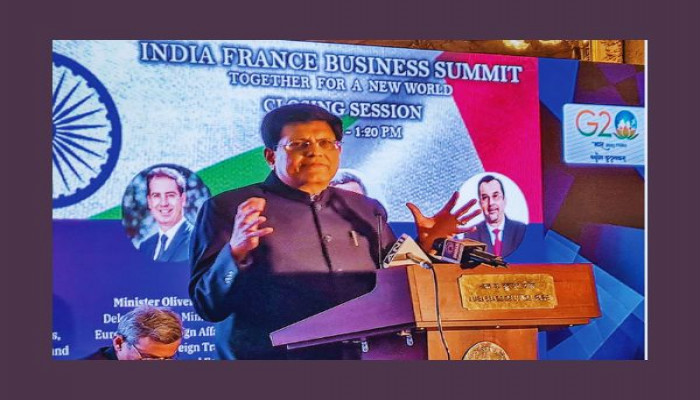Naidu urges Centre to shield shrimp farmers from U.S. tariffs, calls for India-EU FTA
- In Reports
- 10:32 PM, Apr 07, 2025
- Myind Staff
Andhra Pradesh Chief Minister N. Chandrababu Naidu has called on the central government to urgently intervene and support the state’s aqua farming community, particularly shrimp cultivators, as the industry faces a severe blow from new U.S. tariffs. In a letter addressed to Union Commerce and Industry Minister Piyush Goyal late Sunday, Naidu requested the Centre to engage in talks with the U.S. administration to seek an exemption for Indian aqua products from the recently imposed 26% reciprocal tariff.
Naidu’s letter comes in the wake of the United States enforcing the new tariff on Indian seafood exports from April 5, which he said will heavily impact shipments that were harvested and packed based on older trade agreements. These products, now stored in cold facilities, are subject to the revised duties, placing exporters and farmers in a precarious situation.
India’s Shrimp Exporters Face Competitive Disadvantage
According to the Andhra Pradesh government’s official statement released Sunday evening, Naidu highlighted that in the 2023–24 financial year, India exported marine food products worth $2.55 billion to the United States, with shrimp accounting for a staggering 92% of that value. The Chief Minister emphasised the competitive disadvantage Indian exporters now face, noting that countries like Ecuador are subject to only a 10% duty on shrimp exports to the U.S., significantly lower than India’s current duty burden.
Naidu pointed out that Indian exporters already pay a 5.77% Countervailing Duty (CVD). Combined with the new tariff, India faces a duty differential of about 20% compared to Ecuador. He warned that this imbalance could redirect market share away from India, particularly in the U.S., which has historically been a key destination for Indian shrimp.
FTA With European Union Proposed as Strategic Alternative
Beyond the U.S. market, Naidu also recommended that India seriously consider signing a Free Trade Agreement (FTA) with the European Union. He cited the example of Vietnam, which enjoys zero-duty access to EU markets under such an agreement. Indian exporters, by contrast, are currently subject to non-tariff barriers, including a high 50% inspection rate and import duties ranging from four to seven percent. “As a result, these countries are effectively capturing the European market,” he stated.
Impact on Local Ecosystem and Cold Storage Overflow
Naidu expressed deep concern over the ripple effects on Andhra Pradesh’s local aqua economy, stating that the industry, comprising farmers, hatcheries, feed mills, processors, and exporters, is now under intense pressure. He noted that countries such as Vietnam, Thailand, and Japan often source raw seafood from India, process it, and re-export it to the U.S. However, with the steep duties now levied on final products, even these intermediary countries are cancelling orders from Indian suppliers.
He added that this has led to an overflow of cold storage units in Andhra Pradesh, with exporters halting procurement due to the unpredictability in the market. Farmers, as a result, are left unsure of how to store their harvested shrimp, further exacerbating the crisis.
“All these developments are pushing Andhra’s aqua sector into a deep crisis, following which the aqua farmers, hatcheries, feed mills, processors and exporters — all others — are getting affected,” Naidu stated. “Hence, I make an appeal to the Centre to hold necessary discussions with the U.S. (Trump) administration to include shrimp in the exemption list from duties,” he urged.
Centre’s Role Crucial as Shrimp Sector Faces Crisis
As Andhra Pradesh’s shrimp industry stares at mounting losses and operational disruption, Naidu’s plea underscores the urgent need for diplomatic and policy-level intervention. The imposition of additional U.S. tariffs, combined with India’s limited access to duty-free seafood exports in the European Union, is threatening to destabilise one of the state’s most vital sectors. The Chief Minister’s call for negotiations and trade reform aims to not only safeguard the livelihoods of farmers and exporters but also strengthen India’s long-term position in the global seafood market.







Comments